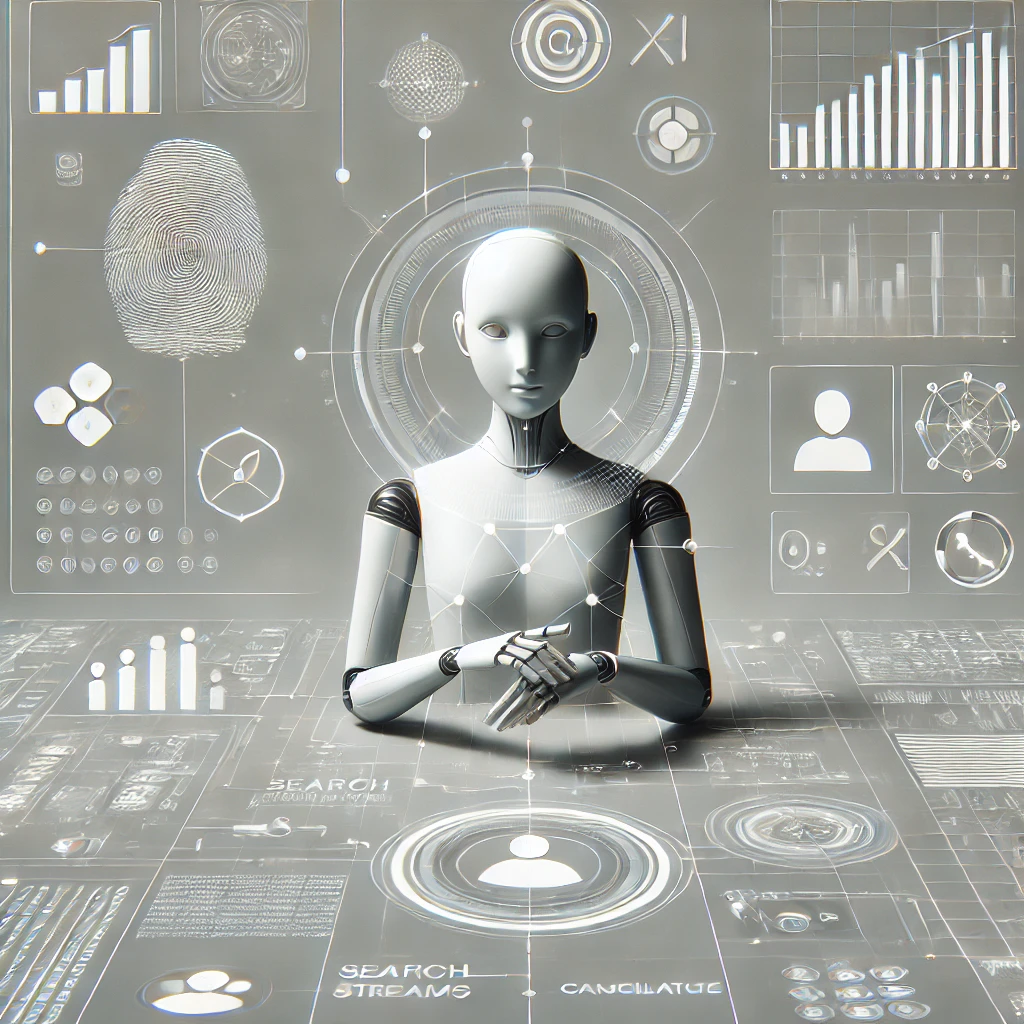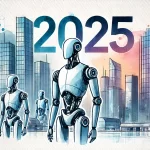It’s official—2024 is gearing up to be the year of AI agents. We’ve all heard the buzzwords, but let’s be real: no one really understands what they mean. It sounds cool, like a secret agent powered by AI, right? Well, you’re not too far off.
AI agents are about to flip our world upside down, from how we book vacations to how we solve complex problems. And we’re not talking about the AI that just regurgitates what it’s trained on. Nope, this is compound AI on steroids—capable of reasoning, problem-solving, and adapting in ways that will blow your mind.
Grab your digital seatbelt, folks. We’re about to discover AI agents and explore how they’ll redefine daily life, one chatbot at a time.
From Monolithic Models to Compound AI: A Shift in Intelligence
Let’s start with the basics. If you’ve ever used an AI tool (looking at you, ChatGPT), you’ve experienced monolithic AI models. These systems are trained on a single dataset—great at tasks like summarizing text or generating quick emails. But they’re limited. Ask a monolithic AI how many vacation days you have left, and it’ll shrug its digital shoulders—because it doesn’t have access to your personal database.
Why It Matters
- Monolithic AI: Limited to what it’s trained on. Think of it as a super-smart parrot.
- Compound AI: Collaborates with tools and databases to solve specific problems. It’s like having a team of experts at your disposal.
Example: Planning Your Next Vacation
Imagine you’re trying to figure out how many vacation days you’ve got left to plan a much-needed escape to Florida. A monolithic AI would just guess or give you irrelevant information. A compound AI system, on the other hand, could access your company’s database, check your available days off, and even calculate how much sunscreen you’ll need for your trip (more on that later).
Systems Over Models: The Power of Design
So what makes compound AI systems so revolutionary? It’s all about system design. Instead of a one-size-fits-all model, we’re talking about a modular, flexible approach to AI. You can mix and match components—language models, search engines, databases—based on what problem you’re trying to solve.
How It Works
- Modularity: Different models for different tasks (e.g., image generation, language understanding, web search).
- Programs: External programs that help break down queries into smaller, more manageable tasks—think of them as "mini-apps" the AI calls upon.
Breaking Down Complex Tasks
Imagine trying to solve a complex problem, like figuring out how much sunscreen to pack for your Florida vacation. The system will:
- Pull up your vacation days.
- Search the weather forecast for sunny days in Florida.
- Check a health website for recommended sunscreen dosages.
- Calculate how many two-ounce bottles of sunscreen you’ll need.
Voilà! Problem solved with a blend of programmatic logic and external tools.
Introducing AI Agents: Taking Control of AI Logic
Here’s where things get fun. In traditional compound AI systems, humans define the logic. You, the user, tell the system what steps to follow. But what if the AI itself could take control? That’s where AI agents come in.
Agentic AI: Think Slow, Act Smart
When you put a large language model (LLM) in charge of the control logic, it stops being a passive tool and becomes an active agent. Think of it as moving from a "think fast, act fast" system to a "think slow, plan, and then act" model.

The Components of AI Agents: The Big Three
To understand how AI agents work, let’s break down their three key components: reasoning, acting, and memory.
1. Reasoning
AI agents don’t just give you the first answer they find—they think through the problem. They plan each step and reason about the best way to solve it. This makes them incredibly powerful for complex tasks that require thoughtful problem-solving.
2. Acting
Once an agent has reasoned through the problem, it acts. But acting doesn’t just mean spitting out an answer. AI agents can call on external tools known as “tools” to get the job done. These can include:
- Web searches: To find relevant data.
- Calculators: For complex math problems.
- APIs: For accessing real-time data or other models.
3. Memory
AI agents can access memory—both from their reasoning process and from previous interactions with users. This allows them to create a more personalized experience, improving over time as they learn from past tasks.
The REACT Approach: A Blueprint for AI Agents
One of the most popular configurations for AI agents is the REACT approach—short for Reasoning and Acting. In this model, the agent doesn’t rush to answer but takes its time, thinking through the query, calling on external tools, and adjusting based on the results.
Vacation Planning REACT Example
Let’s revisit our Florida vacation. You ask your AI agent how many two-ounce bottles of sunscreen you’ll need:
- It checks your vacation days (using its memory).
- It searches the weather forecast for sunny hours in Florida.
- It checks a health website to determine the recommended sunscreen dosage.
- It does the math and tells you exactly how many bottles to pack.
But what if one of these tools gives an incorrect answer? No problem. The agent will reassess, adjust its logic, and try again until it gets the correct solution.
Sliding Scale of AI Autonomy: Programmatic vs. Agentic Approaches
There’s a sliding scale when it comes to AI autonomy. On one end, you have programmatic approaches, which are great for narrow, well-defined problems. On the other end, you have agentic systems, which excel at solving complex, open-ended queries.
For Example:
- Programmatic Approach: Ideal for simple tasks like retrieving vacation days.
- Agentic Approach: Perfect for more complex tasks like solving GitHub issues or planning multi-faceted projects.
As we move further into 2024, expect to see more agentic AI systems handling a broader range of tasks.
AI Agents: The Future of Problem-Solving
By 2024, AI agents will be everywhere—from personal assistants helping you plan your vacation to systems solving complex business problems. What sets them apart is their autonomy and modularity—able to reason, act, and adjust in real-time.
Imagine never having to solve tedious, complex tasks on your own again. Whether you’re a project manager juggling deadlines or a parent planning a family vacation, AI agents will make it easier, faster, and smarter.
Emotional Impact:
- Freedom: AI agents free you from mundane tasks, giving you more time for creativity and leisure.
- Control: You’re not just interacting with static systems—you’re working alongside dynamic, evolving agents that understand and adapt to your needs.
- Hope: The future of AI offers hope for a more efficient, smarter way to live and work.
The Future of AI Agents: Endless Possibilities in 2024
We’re at the dawn of a new era, one where AI agents will seamlessly handle everything from vacation planning to managing complex business operations. And 2024 is poised to be the year these AI-powered assistants enter the mainstream.
Whether it’s LG, Samsung, or Tesla, some of the biggest tech players in the world are already rolling out their own versions of AI-powered agents, from home automation to autonomous vehicles.
Are You Ready for the AI Agent Revolution?
As we hurtle toward the future, it’s worth considering how these technologies will transform your life. Are you ready to have an AI agent as your personal assistant? How will AI reshape the way you work, play, and live?
The future of AI is closer than ever, and it’s time to ask: How can AI agents make your life easier and more efficient? What tasks would you love to delegate to an AI agent, and how could this technology free you up to focus on what matters most in your personal or professional life?
We’d love to hear your thoughts, so drop a comment below! And don’t forget to join the iNthacity community, apply to become citizens of the “Shining City on the Web”, and get involved in shaping the future of AI and technology. Like, share, and join the debate—your voice matters in this fast-evolving landscape!
FAQs
What’s the difference between compound AI and AI agents?
Compound AI systems are programmatic, relying on predefined logic, while AI agents are autonomous, using reasoning to solve complex tasks.
How will AI agents change daily life?
AI agents will take over complex, multi-step tasks, freeing people from mundane chores and enabling faster problem-solving.
Are AI agents safe to use?
While privacy concerns exist, most AI agents store data locally and prioritize user security.
Can AI agents replace human creativity?
AI agents can assist in creative tasks but still require human oversight for the best results.
How do I get an AI agent for personal use?
Expect to see AI agents integrated into home assistants, smartphones, and enterprise tools starting in 2024.
Disclaimer: This article may contain affiliate links. If you click on these links and make a purchase, we may receive a commission at no additional cost to you. Our recommendations and reviews are always independent and objective, aiming to provide you with the best information and resources.
Get Exclusive Stories, Photos, Art & Offers - Subscribe Today!

























Post Comment
You must be logged in to post a comment.